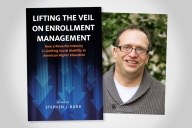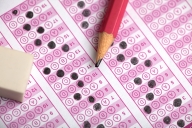You have /5 articles left.
Sign up for a free account or log in.
The Common Application will no longer ask veterans about the nature of their military discharge.
The change, being announced today, on Veterans Day, is designed to encourage more veterans to finish their applications and enroll in college.
“This is about rethinking, with fresh eyes, legacy systems that too often lock out promising students from attending college -- or even applying at all,” said Jenny Rickard, president and chief executive officer of Common App.
Rickard points to research the Common App did that found a large majority of veterans who skipped the question about their discharge did not submit an application. Much of the research was done by Nick West, an Air Force veteran who had an internship at Common App through the Posse program. He's a Vassar College student.
West found that of those veterans who skip the question -- 299 in the year studied -- 80 percent fail to submit an application.
Most of the applicants, 6,809, indicated that they received an honorable discharge, according to the study. Of those who didn't receive an honorable discharge, the reasons for the discharge varied widely, and included medical discharges, so Rickard said they were not an indication that the person would be a poor student.
The Common App also surveyed its 921 members and found that 16 percent said it was always necessary to know discharge status to make an admissions decision. In contrast, 59 percent said it was never necessary.
Rickard said the changes reflected a broad push on "issues of race and equity." Its members clearly believe that the Common App "can't be neutral" on these issues.
The Common App decided last month to stop asking students about their high school disciplinary records.
Rickard said that there is more work to be done. For instance, some have complained that there are multiple questions that relate to one's activities in high school. While there is nothing per se wrong with a student describing those activities, the questions may strike a veteran as odd, or as sending a message indicating that the veteran isn't wanted.
Clark Brigger, executive director of admissions at the University of Colorado at Boulder and a U.S. Navy veteran, said, “Sadly, far too many are deterred by the perception that a general discharge will count as a strike against them in the application process. As institutions of higher education, our missions demand that we identify and break down barriers to access -- and opportunity -- for service members.”
A spokeswoman for the Coalition for College, which competes with the Common App, said the coalition "is committed to removing barriers standing between veterans and college degrees. Our application asks whether an applicant is currently serving or has previously served in the military and automatically connects them to the list of more than 100 Coalition schools that offer our easy-to-use Armed Forces Fee Waiver, which makes it free for veterans and active-duty military to apply to participating member schools. The Coalition Application does not include any questions about how applicants were discharged."








